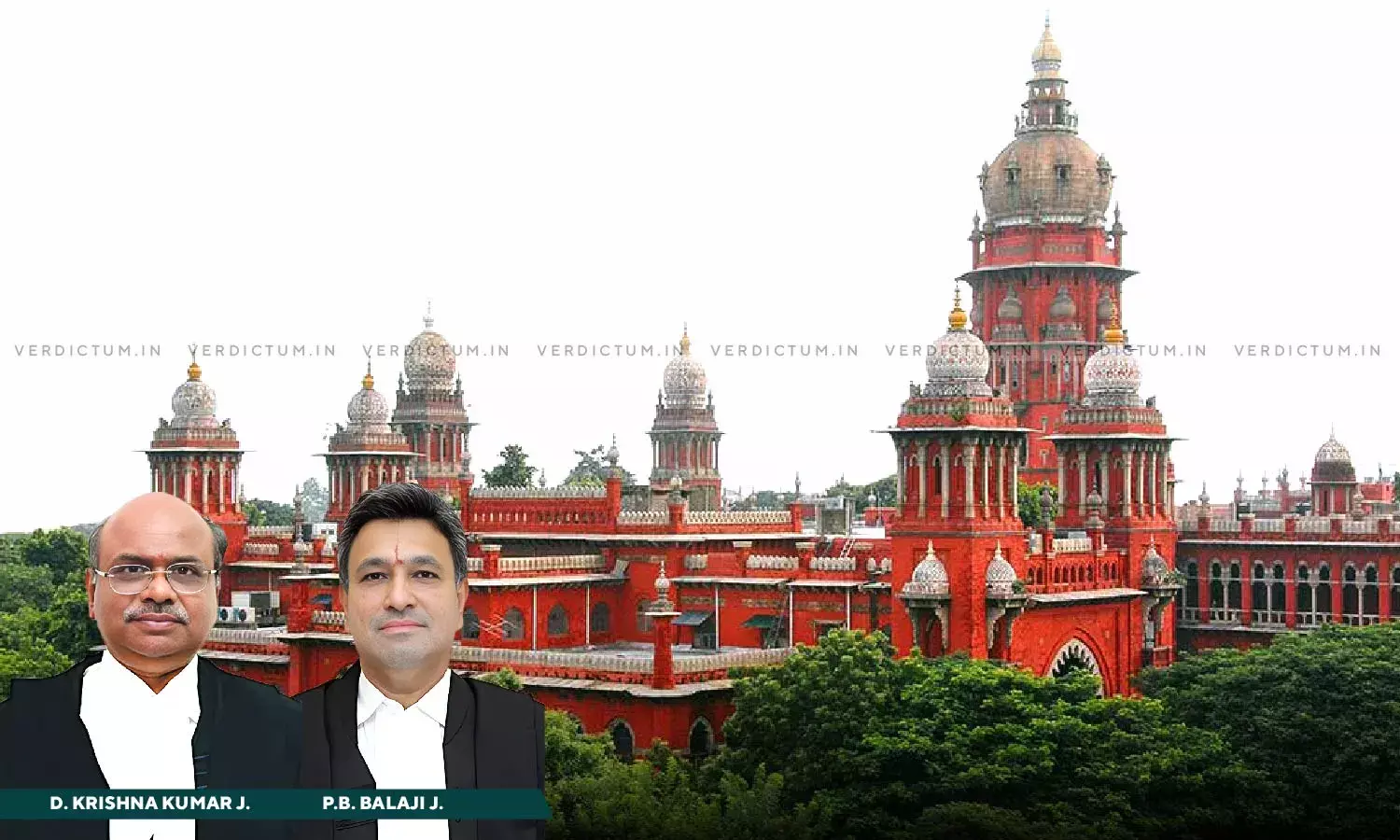Compassionate Appointment For Married Daughters Cannot Be Considered Without Satisfying Their Dependency On Deceased Who Died In Harness: Madras HC

While considering a petition challenging an order whereby Petitioner’s application seeking compassionate appointment was rejected by the sixth Respondent (Registrar, Central Administrative Tribunal/ CAT), the Madras High Court held that since the second petitioner (A. Venkateswari) does not meet the established criteria for granting compassionate appointment as per the Railway Board's Letter No. E(NG) III/78/RC-1/1 dated Feb 03, 1981, the CAT has rightly rejected the petitioner’s request for compassionate appointment, which needs no interference.
The Division Bench of Justice D. Krishnakumar and Justice P.B Balaji observed that “the principle of gender equality and non-discrimination is of paramount importance. We accept that no contrary view can be taken in considering compassionate appointment for married daughters of the family unless they satisfy other criteria viz., dependency, financial status, etc., as laid down in the relevant Rules or Act”.
Advocate R. Jayaprakash appeared for the Petitioner, whereas Advocate P.T. Ram Kumar appeared for the Respondent.
The brief facts of the case were that the husband of the first petitioner who worked as a Gang mate in southern railway, died in harness leaving behind the first petitioner and his two daughters and one son. The second petitioner is the daughter of the deceased employee. Since his brother gave consent to apply for a job compassionate appointment, she made request to the southern railway seeking compassionate appointment. When the said request was rejected, the petitioner approached the CAT, which was also dismissed.
After considering the submission, the Bench noted that the CAT has rejected second petitioner's request based on the Railway Board's Letter No. E(NG) III/78/RC-1/1 and the Railway Board’s Clarification vide Letter No. E(NG)II/99/RC-1/ICF/4, wherein the Railway Board has examined the criteria for compassionate appointment to married daughter of the deceased family and clarified in the above letter that if there are no other wards to be looked after, then there would be no justification for considering married daughter for compassionate appointment.
Further the financial condition of the deceased family is also an important criterion for offering compassionate appointment, noted the Bench.
The Bench stated that the second petitioner who sought for compassionate appointment, got married four years before the death of her father/deceased employee, and the first petitioner/wife of the deceased employee was receiving family pension of Rs.18,734/- on the date of order passed by the CAT.
“She has no other dependent minor children to be taken care of after the death of the employee. The rejection order was not passed by the respondents because of her marital status but based on the financial status of the deceased family as per the criteria laid down by the Railway Board for offering compassionate appointment”, added the Bench.
Referring to the Apex Court decision in case of Umesh Kumar Nagpal vs. State of Haryana [(1994) 4 SCC 138], the bench reiterated that mere death of an employee in harness does not entitle his family to such source of livelihood, and the Government or the public authority concerned has to examine the financial condition of the family of the deceased while granting compassionate appointment.
“In the case on hand also the 2nd petitioner who got married 4 years prior to the death of his father and living separately with her family cannot be considered as dependent to the deceased employee. As discussed above, the wife of the deceased employee/1st petitioner herein received a lumpsum settlement amount of Rs.6,01,934/- from the respondent department and has been receiving family pension of Rs.18,734/- per month”, added the Bench.
Therefore, the High Court concluded that the second petitioner who as presumed to be employed on account of his undertaking to take care of mother and family members was not dependent of deceased employee at the time of his demise.
Accordingly, the High Court confirmed the action of the CAT.
Cause Title: A. Chinnaponnu and Anr. v. Union of India and Ors.
Click here to read/download the Order

